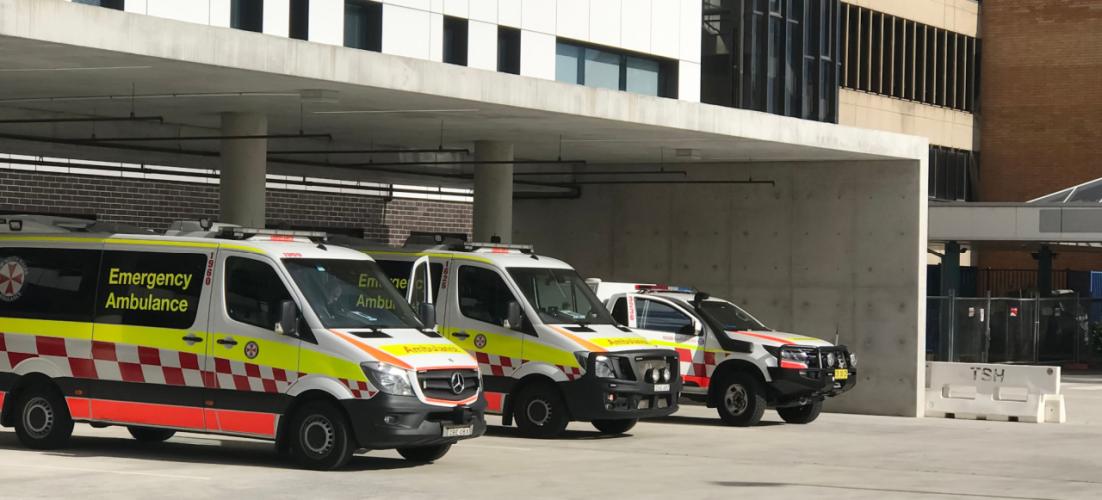Action is needed to stop ambulance ramping
TRANSCRIPT - Dr Maria Boulton, 4CA Cairns

Transcript: AMA Queensland President, Dr Maria Boulton, 4CA Cairns, John MacKenzie, Monday 19 September 2022
Subjects: Ambulance ramping, healthcare workforce
JOHN MACKENZIE: At least 20 Queenslanders have tragically died and seven people needed to be revived in cases where paramedics under extreme pressure took too long to respond due to hospital ramping and surging workloads. I put a call through to a doctor, Maria Boulton, Australian Medical Association Queensland President, on this particular matter. Maria, good morning, and thanks for joining me on the program.
DR MARIA BOULTON: Good morning, John.
JOHN MACKENZIE: Up here in North Queensland, we've been suffering from this issue probably longer than most because when it started emerging up here, we thought, "Oh, it'll be addressed very quickly." And the four or five [ramped ambulances] we were horrified by, we thought would shrink immediately. It got worse and worse. And when we had 11, we knew we had a real crisis on our hands. This seemingly now has spread right across the state. There are these issues all over the place. What's gone wrong, Maria?
DR MARIA BOULTON: Yeah, we're seeing that across the state, John, and I guess it's a problem that started before COVID, so the excuse of the COVID pandemic just doesn't cut it because we knew our system was stretched prior to COVID. And I'd like to give a shout out to all the wonderful paramedics out there who are doing the best they can in the system they have. And also all the healthcare workers out there. And I guess this is not a reflection on what they're doing. It's a reflection of the system that's broken.
JOHN MACKENZIE: Yes.
DR MARIA BOULTON: And I guess for your listeners, what happens at the moment in a hospital is that there are not enough beds in the actual hospital, so then patients have to wait for a long period of time. And I heard of a patient who'd been waiting for a mental health bed for 48 hours in emergency.
These patients then clog up emergency, and then what happens is that ambulances that bring patients with really urgent issues can't offload their patients onto an emergency bed. What they're doing is that they're either ramped at the car park of the hospital, or they're waiting with their patient on a stretcher in a hallway in emergency. And then basically that means that those paramedics can't go out and respond to other calls.
So really what you're seeing is the tip of the iceberg. It's the whole system that has been underfunded and neglected for a long, long time. And what we see is, when a system is under strain, is that eventually tragedies happened. And it is so tragic what's happened to those 20 people and their families.
JOHN MACKENZIE: I presume you are asked this question often, Dr Maria Boulton, where do we start? I mean, seriously, this has been going on for quite an extended period of time. What can we do to start sorting it out?
DR MARIA BOULTON: Yeah, we actually put together a Roundtable at AMA Queensland looking at exactly this issue. And we gave the state government some possible solutions. And some of them included more hospital beds, which we will get, but we'll get some of them not for six years, whereas we needed them yesterday.
But we also asked them to consider other solutions such as making sure that hospitals don't run over capacity. They need to run at less than 90 per cent capacity so that if they have a busy day for example, they have that surge capacity to deal with the surge.
But also making sure that hospitals operate seven days a week so that people are discharged on Saturday and Sunday, rather than waiting for a bed. Also, making sure that people who are in hospital waiting for a bed in an aged care facility, for example, get a bed in an aged care facility. We were a bit disappointed with the state budget this year. There was very little money compared to... I mean, there was a little bit of an increase compared to last year, but now that's not even keeping up with inflation, which is more than 7 per cent. We needed more money and we need more staff. And there was a summit held in Cairns, I think it was last week, and they found that the biggest issue at the moment, especially in the regions, is accommodation. There's just nowhere for healthcare workers to stay if they want to work in a region, rural or remote area. Queensland Health is also holding another summit next week and they're calling it a Health Workforce Summit, which we will be at.
But really, you need a whole of system approach. We need to see what's happening in hospitals, but we also need to ensure that general practice is well funded because we need... The people that end up in hospital are people who are severely ill with chronic illness who need emergency care. They're the ones that are actually needing those hospital beds. And that's where the problem is. Ensuring that general practice is well funded so that people stay well, and so that we control chronic diseases as well as possible to try and keep people healthy would be a really, really good solution.
JOHN MACKENZIE: Gee, it's a huge challenge, Maria, very daunting, but I'm so pleased to hear you give us that update. We'll stay in touch if that's all right with you, Maria.